Sitting behind his desk at Newcastle-under-Lyme council’s waste depot, Trevor Nicoll carefully considers how municipal services are perceived by the public. “There are a lot of myths out there in the press when it comes to how councils see their householders” he says. “But at the same time I think we can underestimate how important waste and recycling collections are for residents and how big a job and how complex it is.”
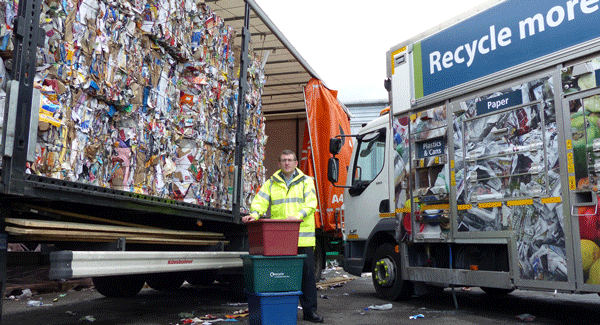
As head of the local authority’s recycling, waste and fleet services, and a chartered waste manager, Mr Nicoll understands those challenges better than most. His council, located near Stoke-on-Trent in Staffordshire, has been singled out by the national media in recent times, once dubbed the ‘nine bin nightmare’ by the Daily Mail for the number of containers provided to households, and again this summer when it began replacing these with three colour-coded boxes to simplify recycling for its residents.
Blueprint
Mr Nicoll describes how the council had considered 13 options for the waste service, including commingling all materials in one bin. Eventually, the authority settled on a service styled on the Welsh Blueprint for collections. This includes separate kerbside sorting of dry recyclables in two or more containers, weekly separate food waste collections, procuring multi-compartment vehicles for rounds and fortnightly collection of residual waste.
“We are following the Welsh Blueprint to the letter, except for procuring the stackable trolley boxes,” Mr Nicoll explains. “What we collect for recycling is always recycled. However a huge percentage that goes into a commingled bin will end up not being recycled; we’ve seen other authorities where contamination rates are going into double figures.”
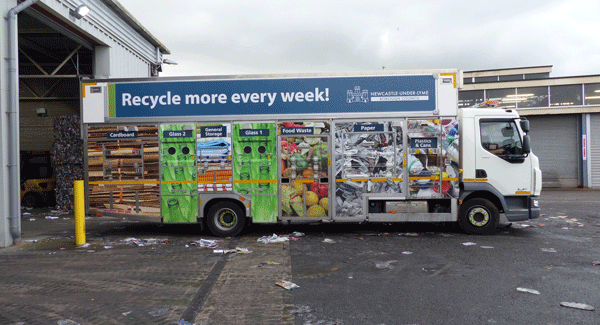
Newcastle had long been famed for providing residents with the widest selection of containers in the country, with separate bags for cardboard, paper and textiles, a red single-use bag for plastic bottles, and a blue box for cans and glass. In rolling out its new service, Newcastle has replaced these bags with a green box for glass and cardboard, and a red box for metal and plastics. Householders will return blue boxes but use them for paper, small waste electricals, batteries and textiles.
Quality
By streamlining the system, the council aims to combine the best of both worlds; retaining the quality and minimum contamination that is achieved through kerbside sort while ensuring residents are clear which material goes where. The streams are sorted at the depot before being sent on to reprocessors; glass to Berryman, paper to UPM, aluminium cans to Novelis and steel, cardboard and plastics to Newport Paper. Food waste is sent to Biffa’s Cannock Chase AD plant down the road. “It’s kept clean so there’s still a strong demand for the material,” Mr Nicoll says. “That makes a huge difference when it comes to price.”
“A number of English councils already following the Welsh blueprint,” he continues. “Somerset have a box system, as do Cheshire West, Gloucester, a lot of councils are quietly getting on with it. The issue in England is lack of decision. It is extremely difficult for a council with a fully commingled system to suddenly go back to kerbside separate.
“A halfway house is maybe where we end up, with glass separated. That’s what kills the process. And while a lot of waste firms have invested heavily in materials recycling facilities, those MRFs could technically still be used to achieve higher consistency in the sorting of plastic grades.”
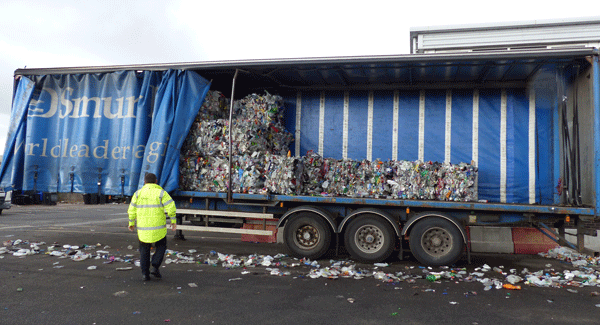
Four months after that rollout, Mr Nicoll is ready to reflect on the success of the new system, and the lessons learnt along the way. In the first week of the new service, Newcastle experienced a 20% spike in recycling material being collected which initially led to the service being overwhelmed. But through working with members of the public closely and a “little bid of bedding in” of the new, narrower waste trucks, the head of waste believes that these initial problems have been overcome.
In-house
On another level, the council has also had to contend with changes to the structure of how its waste services are delivered. Before the July rollout, collections were undertaken on the council’s behalf by Acumen Waste Services – a contract which has now ended.
Mr Nicoll is quick to extol the benefits of local authorities taking control of their own waste services if there is a business case to do so. “It’s about creating value for residents, even if that’s a little bit more work,” he says. “We have brought collections in-house, which means we have full control of that material, and we have moved from two to one depots. We are finding that we like having control of our own destiny.”
Definition
So what next for the council? With the future of UK waste policy hanging in the balance after June’s EU referendum, Mr Nicoll suggests the next stage is to look at recycling at a national level.
“What we need to do is look at this green waste issue,” he says, “Especially with more authorities charging for green waste, I think that could really tip our recycling rates. Home composting is something everybody wants to see happen, but councils can’t see the impact of that. At what point do we look at other ways of measuring performance, such as switching the focus to dry recyclate?”






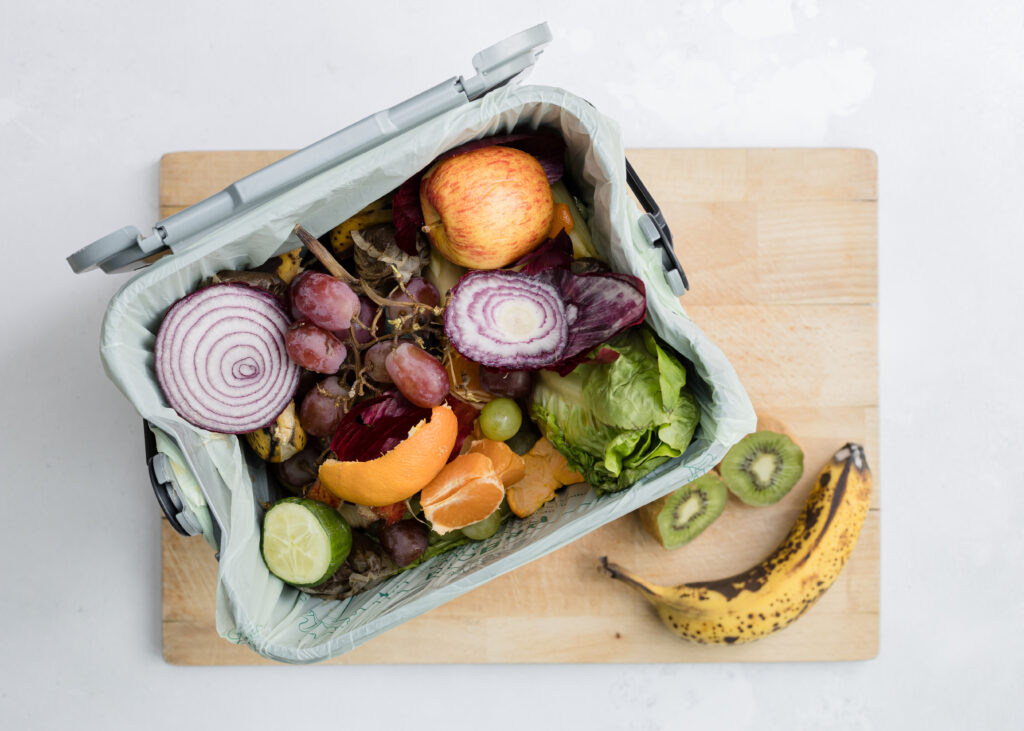

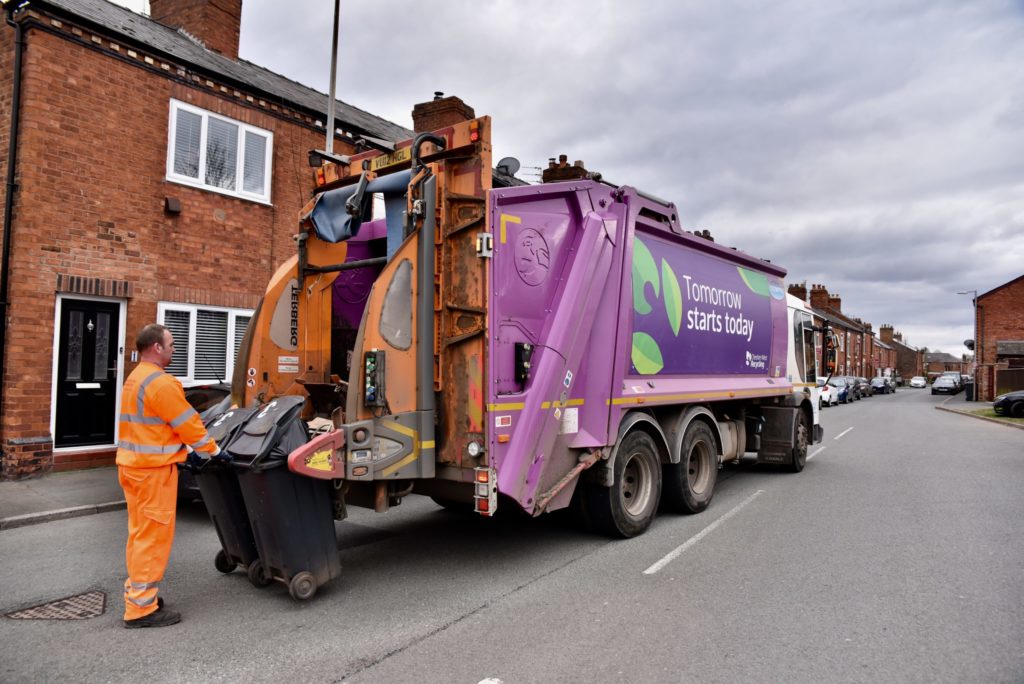


Subscribe for free